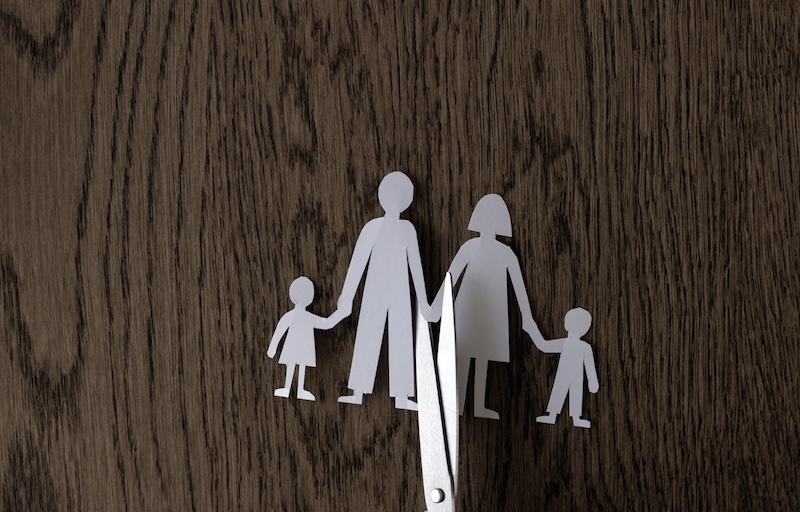So, you’re gearing up for a big move? That’s a massive deal, especially when you have kids, and there’s a custody agreement to think about. Nowadays, people move for all sorts of reasons—maybe a new job, better schools, or just craving a change. But when it comes to your little ones, a move is way more than just a change of scenery. It’s a whole new chapter for everyone involved.
Moving isn’t just about finding a new place to call home. It’s your child’s whole world getting a shake-up—new friends, a different school, and a bunch of new routines. This isn’t an uncommon scenario, as numerous research efforts have shown. On average, children experience relocation 2.5 times from birth until the eighth grade, with some moving as many as 11 times.
This frequent change can have a profound impact on their lives. Not to mention, it’s a significant adjustment for you and your ex, too. It means that you won’t just be dealing with the emotional transitions you and your child will go through and figuring out the daily grind post-move but also the legal complexities and how this change can affect child custody arrangements.
The legal stuff you can’t ignore
Each state in the U.S. plays by its own rules when it comes to custody and moving. In some places, for example, you need to give your ex a heads-up if you’re planning to move, while in some states may require court approval. It’s a smart move, therefore, to get advice from a family law expert like Shapiro Law to help you navigate these legal waters, making sure you don’t accidentally step on any legal landmines while keeping your child’s welfare a top priority.
Your legal responsibilities really depend on how far you’re moving and how that affects your current custody agreement. A move across town is a whole different ball game than moving to a new state. The courts are going to zero in on why you’re moving and how it benefits your child. They’re all about what’s best for your kid, like making sure they stay connected with both you and your ex.
What it feels like for your child
The challenge doesn’t stop after settling legal concerns. Up next is preparing your kids for the move. It’s worth noting that moving can stir up a storm of emotional and psychological hurdles for your child as they say goodbye to friends and adjust to a new school and neighborhood. Studies show that relocation is a major stress factor, especially for kids with past mental health issues. Hence, it’s crucial to sit them down and talk about the move. Listen to their concerns, reassure them, and always keep their emotional well-being at the forefront.

Kids react differently to new situations. Some might adapt quickly, while others might miss their old life. So, keep an eye on their emotional health, and don’t be shy about getting help if they’re struggling. School counselors and therapists can be great at helping your child navigate their feelings and get used to their new environment.
Furthermore, don’t forget to think about how much say your child gets in this decision. While younger kids might not get much of a say, teens might feel overlooked if they’re not part of the conversation. Finding a balance between making big decisions as a parent and respecting your child’s opinions and feelings is key.
Co-parenting like a boss
Moving away can make it tough for your child to keep up their relationship with the non-custodial parent. But hey, technology can be a lifesaver. Regular video chats, playing games online, and watching movies together can keep that bond strong, even when you’re far apart.
It’s all about setting up a co-parenting routine that works for everyone involved. You may also need to rethink the custody schedule to make room for longer visits during school breaks or special occasions. Flexibility and a commitment to keeping that parent-child bond strong are essential.
And don’t overlook the practical side, like who’s going to cover travel costs. Honest and open discussions with your ex are key. The end goal? Making sure your child stays connected with both parents, no matter how many miles are between them.

Rolling with life’s punches
Life’s unpredictable, and sometimes things change after you’ve moved. Maybe the reasons for moving aren’t there anymore, or something new comes up that means another move is on the cards. When that happens, it might be time to contact your custody lawyer, always with your child’s best interests in mind.
Getting legal advice here is key to making sure you’re fully clued up on your rights and responsibilities. And remember, kids are resilient. With your support and guidance, they can handle new situations and come out strong. Your role as a parent is to provide stability, love, and understanding, no matter where life takes you.
Wrapping up
Moving throws a unique set of challenges into the mix of child custody, but with some careful planning, straight talking, and legal smarts, you can navigate these waters. It’s all about striking the right balance—legally, emotionally, and in keeping those parent-child relationships intact.
If you’re mulling over a move or right in the thick of it, just remember: your child’s well-being is your North Star. With the right mindset, moving can be a positive step for everyone in your family.




